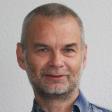
Jochen Gläser
Jochen Gläser
Senior researcher at the Center for Technology and Society of the Technical University Berlin, Germany
Presentation title
Researchers‘ Careers and Inclusion in Scientific Communities
Knowledge production in the sciences, social sciences and humanities is a communal enterprise rather than an activity of isolated individuals. However, although researchers produce knowledge as members of scientific communities, they are included in their communities’ knowledge production in different ways and to different degrees. Community members produce different types of contributions, use contributions by fellow community members in specific ways and differ in their inclusion in the community’s decision processes. These differences manifest themselves in specific roles and statuses of researchers and in various national-level and international-level centre-periphery structures of scientific communities.
In our lecture, we discuss the ways in which researchers’ careers position them in these centre-periphery relationships. Using evidence from projects on early career researchers and research in the GDR and the US, we discuss the impact of national and organisational conditions on the inclusion of researchers in their international scientific communities, including
- the inescapable tension between researchers’ need to be active members of their international scientific community, on the one hand, and their own or others’ expectations to contribute to national development;
- the impact of national and organisational constraints such as insufficient resources, institutional restrictions of communication or travel or political priorities for research on the positioning of researchers; and
- The opportunities for researchers to overcome ‘cumulative disadvantages’ resulting from prolonged limited inclusion.
Our theoretical conclusion from this discussion is that the positions of researchers in their scientific communities are far more varied than previously considered, and that researchers’ careers must be re-thought with regard to their function of positioning of researchers in various centre-periphery structures. A political conclusion is that science policy and management measures must be assessed according to the opportunities they provide for researchers to participate in the knowledge production of their scientific communities.
Biography
Jochen Gläser is a senior researcher at the Center for Technology and Society of the Technical University Berlin. He obtained his PhD at the Humboldt-University Berlin. His major research interest is the interaction of epistemic and institutional factors in the shaping of conduct and content of research at the micro-level of individuals and groups and at the meso-level of scientific communities. A major theoretical interest of Jochen Gläser is the social order of scientific communities and more generally of community as a type of social order. He has also published on qualitative methods, research methods in science studies including bibliometrics and interviewing, and methods of research evaluation.
His current empirical projects concern the relationship between internal structures and knowledge flows in scientific communities, the diffusion of incorrect scientific information, communication patterns in the social sciences and humanities, and the consequences of inclusion deficits of GDR scientists for their later careers. A methodological project develops bibliometric methods for linking individual and communal levels of knowledge production. Recent publications include Gläser, J. and G. Laudel (2016) "Governing Science: How Science Policy Shapes Research Content." European Journal of Sociology / Archives Européennes de Sociologie 57(01): 117-168; and Whitley, R., J. Gläser and G. Laudel (2018) "The Impact of Changing Funding and Authority Relationships on Scientific Innovations." Minerva 56(1): 109-134.
